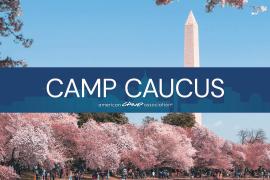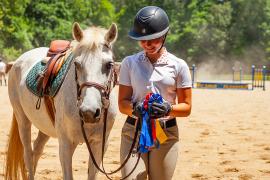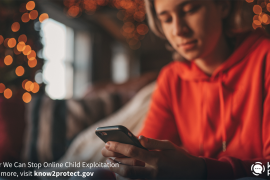My first thought upon pulling into the woodsy cluster of cabins with a glint of lake in the background that was to be my camp home for the next week was: Where have you been all my life?
The things I learned at camp — about the world at large, the nature in my immediate surroundings and, especially, about myself — have served me well my entire life.
I was a latecomer to camp at age 14, but I took to it like a canoe to water. Before camp, I would spend my summer months sitting on the couch moaning about how bored I was, or watching TV until my eyes went all wonky. The idea of spending a week in nature, with strangers, and without media was less than appealing, to say the least.
This is likely even more true for kids today, whether they are 14 like I was, or 10, eight, six . . . however old they are when they see the sleeping bag come out of the closet and are told to pack their bags for some good old-fashioned camp time. The hesitation to leave everything that feels so familiar and secure might be overwhelming. There may be some mighty resistance against parting company with their strictly-defined comfort zones. To that possibility I say: send them anyway!
To go to camp for the first time is a revelation. Sure, there are mosquitoes — let’s just establish that fact now. Lots and lots of mosquitoes. But! There is also magic.
Camp directors and staff, all with seemingly endless energy, have somehow managed to find surprising ways to make learning important life skills like taking initiative, positive communication, constructive criticism, team building, cooperation and conflict resolution feel second-nature. These lessons get woven with laughter and fun into games, safety training, story sharing and so much more. I came away from my first of many, many weeks of camp with a newfound sense of self-accomplishment, confidence, and an overall tackle-the-world mentality I’d never had before.
Activities which might make eyes roll from corniness in the outside world hold a certain reverence at camp, whether the camper realizes it at the time or not. Learning traditional folk dancing came in handy for me later in life at a hilarious uncle’s wedding. Knowing the words to Kumbaya is never frowned upon around a campfire; likewise, you’d be surprised how many people around you will join in for a round of Boom Chicka Boom. A very comfortable performer today, I tackled my earliest threads of stage fright in front of a camp full of accepting peers.
Camp is boisterous singing and wacky entertainment during meals, while still keeping an eye on table manners . . . who knew keeping elbows off the table was a thing?! I sure didn’t before I learned it at camp. Camp is the camaraderie and cooperative planning of team playing. Camp is specifically organized blocks of time, with allotments given to do some much-needed free-range exploration, so the regimentation doesn’t start to bum anybody out. Camp is friendship, bringing people together from all walks of life and mixing them together into one big happy circle of friends. Camp is respect: respect to express yourself in new ways, to make your own choices in a controlled and creative environment, to speak your truth and understand you will be heard and applauded.
Most of all: camp is a gift. It is not an understatement to say that my friendships, my family, my career, and the way I view every day are all thanks to camp. And for that, I am extremely grateful.
This blog is sponsored by Chaco. This blog was written by #ChacoNation member Amanda Janik. At Chaco, we really strive to elevate the voices and perspectives of our community.
Periodically, the American Camp Association (ACA) makes timely and relevant information about products and services available to its members so they can make informed decisions for their camps. However, the ACA does not endorse products, services, or companies.
The views and opinions expressed by contributors are their own and do not necessarily reflect the views of the American Camp Association or ACA employees.



